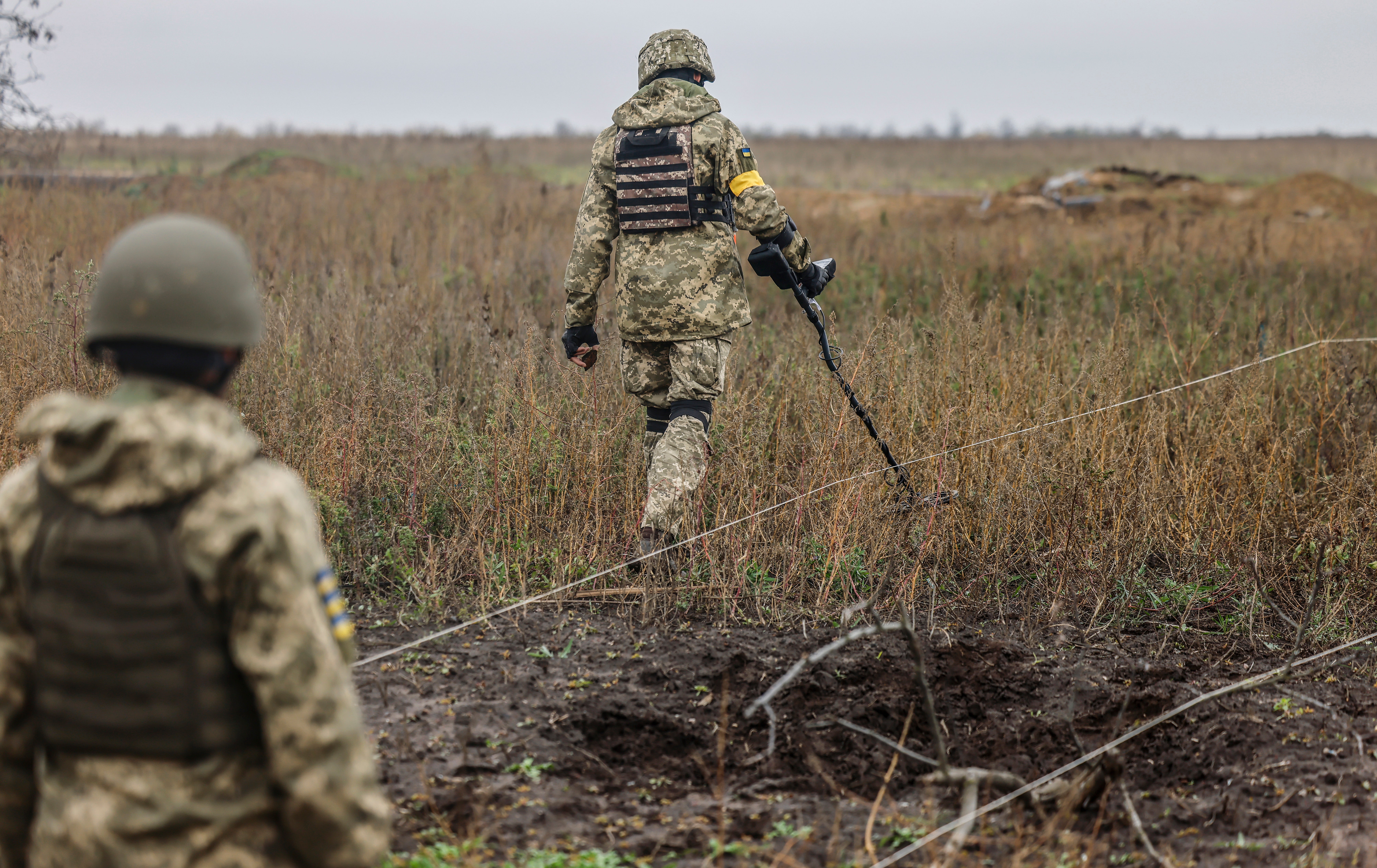Russian forces steal remains of national icon Potemkin from grave in Kherson
Both Ukraine and Russia preparing for key battle for control of Kherson

Russian forces have removed the remains of Grigory Potemkin, a Russian statesman, from his grave in Ukraine.
A Moscow-backed governor claimed the move was to protect one of their national icons during a Ukrainian counter-offensive in the city of Kherson, where he was buried.
Ukraine’s troops have been pushing ahead with efforts to reclaim the southern Kherson region and its capital, captured by Russian troops in the first days of the invasion.
More than 70,000 residents around the city have evacuated in recent days, the region’s Kremlin-installed governor, Vladimir Saldo, said on Thursday.
Members of the Russia-backed regional administration also fled, deputy governor Kirill Stremousov said.
In recent days, monuments to Russian heroes have been moved. This includes the remains of Potemkin, the general who founded Kherson and led the annexation of Crimea in the 18th century by the Russian Empire.
The prince’s remains were kept in the city’s St Catherine’s Church.
Monuments to Russia’s 18th-century military chiefs Alexander Suvorov and Fyodor Ushakov have also been removed from Kherson.

Both Ukraine and Russia have been preparing for what could be a key battle for control.
Ukrainian forces have been surrounding the city from the west. They attacked Russia’s foothold on the west of the Dnieper River, which divides the region and the country, on Thursday.
Its military claimed its forces in Kherson had killed 44 Russian troops in 24 hours, and destroyed an ammunition depot and a hangar with equipment.

However, Ukrainian officials have said tough terrain and bad weather had held up their main advance in Kherson.
Russian forces shelled Ukrainian positions along the line of contact and built fortifications, particularly on the east bank of the Dnipro, the Ukrainian military said on Thursday.
Kherson is one of four regions in Ukraine that Russia declared part of its territory last month.
Both Ukraine and world leaders have refused to recognise the annexation, claiming it followed sham elections.
Additional reporting by agencies






Join our commenting forum
Join thought-provoking conversations, follow other Independent readers and see their replies
Comments